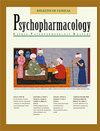A Futuristic Approach to Psychiatric Diagnosis
Q Medicine
Klinik Psikofarmakoloji Bulteni-bulletin of Clinical Psychopharmacology
Pub Date : 2015-12-01
DOI:10.5455/BCP.20151115023922
引用次数: 0
Abstract
Earlier diagnosis and intervention have value in virtually every illness. Concentrating on early treatment even before the clinical syndrome emerges is a futuristic goal in neuropsychiatric disorders. But psychiatric diagnosis relies exclusively on subjective considerations, not on objective laboratory tests and biological markers. Nevertheless, at some point in the future, a new way of diagnosing psychiatric disorders will overtake conventional diagnostic procedures that are depending on symptom checklists. Developing a new set of diagnostic criteria based on genomics and neurocircuitry of psychiatric disorders will not only lead to a more precise diagnosis but will a l s o h e l p u s d e v e l o p m o r e s p e c i f i c , biotechnological , and disease-modifying pharmacologic agents. It is truly thought-provoking to consider that online search systems, or other commonly used social network systems may be used to detect those who may be at very high risk of developing psychosis. Recently, long-time director of the National Institutes of Mental Health (NIMH) Dr. Thomas R. Insel joined Google Life Sciences. In an interview Insel acknowledged that he believed that technology companies are going to play an increasingly important role in understanding the complexities of brain function and improve our understanding of conditions such as Alzheimer’s disease and autism. In this editorial, we briefly review the candidate diagnostic tests in psychiatry and make recommendations on the future development. Automated Speech Analysis Programs精神病学诊断的未来主义方法
早期诊断和干预对几乎所有疾病都有价值。专注于早期治疗,甚至在临床症状出现之前,是神经精神疾病的未来目标。但精神病诊断完全依赖于主观考虑,而不是客观的实验室测试和生物标记。然而,在未来的某个时刻,一种诊断精神疾病的新方法将取代依赖症状清单的传统诊断程序。开发一套新的基于基因组学和神经回路学的精神疾病诊断标准,不仅将导致更精确的诊断,而且将为治疗精神疾病提供一种新的方法,使人们能够更好地利用生物技术、生物技术和疾病修饰药物来治疗精神疾病。考虑到在线搜索系统或其他常用的社交网络系统可以用来检测那些可能患精神病的风险很高的人,这确实令人深思。最近,长期担任美国国家精神卫生研究院(NIMH)主任的托马斯·r·因塞尔博士加入了谷歌生命科学。在一次采访中,因塞尔承认,他相信科技公司将在理解大脑功能的复杂性方面发挥越来越重要的作用,并提高我们对阿尔茨海默病和自闭症等疾病的理解。在这篇社论中,我们简要回顾了候选的精神病学诊断测试,并对未来的发展提出建议。自动语音分析程序
本文章由计算机程序翻译,如有差异,请以英文原文为准。
求助全文
约1分钟内获得全文
求助全文
来源期刊
CiteScore
0.34
自引率
0.00%
发文量
0
审稿时长
6-12 weeks

 求助内容:
求助内容: 应助结果提醒方式:
应助结果提醒方式:


